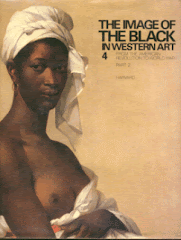Pre-Game Coin Toss Makes Jacksonville Jaguars Realize Randomness Of Life
HAPPY HOLIDAYS EVERYONE
 I immediately began running this search program I had installed in my head (mothers have super powers of course - and, y'all know that ain't me in the picture with him). I wanted to be certain that I would pick the perfect pattern using yarn that I have "in stock". You see, like many of you, I have tons of knitting books and binders and folders stuffed with patterns. Last night, rather than sit and start knitting the first hat pattern I found that met the "hat with earflaps" requirement, I decided to rummage through ALL of my pattern books and patterns.
I immediately began running this search program I had installed in my head (mothers have super powers of course - and, y'all know that ain't me in the picture with him). I wanted to be certain that I would pick the perfect pattern using yarn that I have "in stock". You see, like many of you, I have tons of knitting books and binders and folders stuffed with patterns. Last night, rather than sit and start knitting the first hat pattern I found that met the "hat with earflaps" requirement, I decided to rummage through ALL of my pattern books and patterns. My pal Phyllis commented that she hoped this wasn't where all those helmet liners ended up...
My pal Phyllis commented that she hoped this wasn't where all those helmet liners ended up...
 For years I had successfully imposed the, "No violent video games in my house" rule. If any of my boys even hinted that they wanted one of those games, they would have to endure endless hours of my stories about how unglamorous it is to grow up in the projects or the ghetto or a major city if you can't employ several body guards to walk around with you.
For years I had successfully imposed the, "No violent video games in my house" rule. If any of my boys even hinted that they wanted one of those games, they would have to endure endless hours of my stories about how unglamorous it is to grow up in the projects or the ghetto or a major city if you can't employ several body guards to walk around with you.



 That's my Jonathan there in the tie. Yes, that is a smile. He was so glad to see all of his cousins again especially his buddy, Daniel my baby brother's youngest son.
That's my Jonathan there in the tie. Yes, that is a smile. He was so glad to see all of his cousins again especially his buddy, Daniel my baby brother's youngest son.


 The Mason Dixon ladies didn't seem at all worried about the stock market, they gave a fun talk about their new book. As soon as I'm able to deal with the subliminal message that 'mason dixon' has on my psyche, I may one day buy their book.
The Mason Dixon ladies didn't seem at all worried about the stock market, they gave a fun talk about their new book. As soon as I'm able to deal with the subliminal message that 'mason dixon' has on my psyche, I may one day buy their book. I just had to bring Phyllis and Elaine to see the Socks That Rock booth. People go berserk here every year and it is so much fun to see it live!
I just had to bring Phyllis and Elaine to see the Socks That Rock booth. People go berserk here every year and it is so much fun to see it live! Did anyone spot this lady? She was near the Socks that Rock booth, spinning angora and seriously wearing that gorgeous sweater she spun and knit.
Did anyone spot this lady? She was near the Socks that Rock booth, spinning angora and seriously wearing that gorgeous sweater she spun and knit.
 Hey yall, bet you thought I had abandoned this ol' blog. Nope. My dang computer is sick with the slow disease and I've not had a spare 4 - 5 hours to talk with some call center geek to get it fixed. I've decided to use my son's brand new computer while he is at school during the day.
Hey yall, bet you thought I had abandoned this ol' blog. Nope. My dang computer is sick with the slow disease and I've not had a spare 4 - 5 hours to talk with some call center geek to get it fixed. I've decided to use my son's brand new computer while he is at school during the day. Thats Phyllis with the very funny Yarn Harlot, Stephanie
Thats Phyllis with the very funny Yarn Harlot, Stephanie I was so glad to run into some Modern Yarnies. There were others in the group (Kristine...) who were a bit camara shy...
I was so glad to run into some Modern Yarnies. There were others in the group (Kristine...) who were a bit camara shy... Still working on My Inauguration Day scarf - I decided to do it as a sampler stitch idea. I'm using Black Bunny Fibers Unity Yarn.
Still working on My Inauguration Day scarf - I decided to do it as a sampler stitch idea. I'm using Black Bunny Fibers Unity Yarn. There's lots more to tell and more pictures of Rhinebeck that I'll save for another installment. Take care, and don't forget to vote!
There's lots more to tell and more pictures of Rhinebeck that I'll save for another installment. Take care, and don't forget to vote!
Daily rituals of suburban living performed by a recovering urban misfit all while knitting, cooking, reading, writing, screaming, laughing and trying to enjoy the journey.








